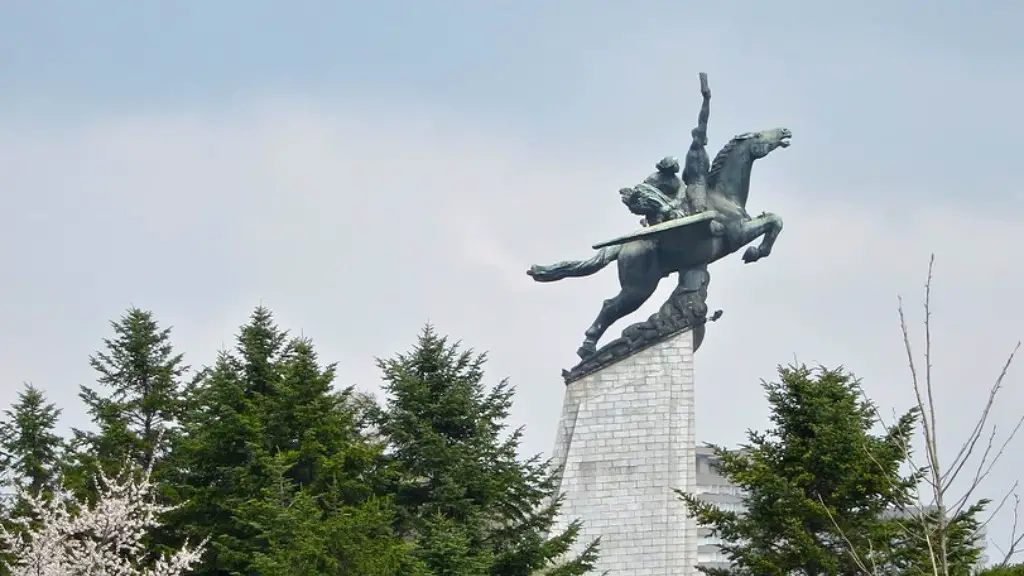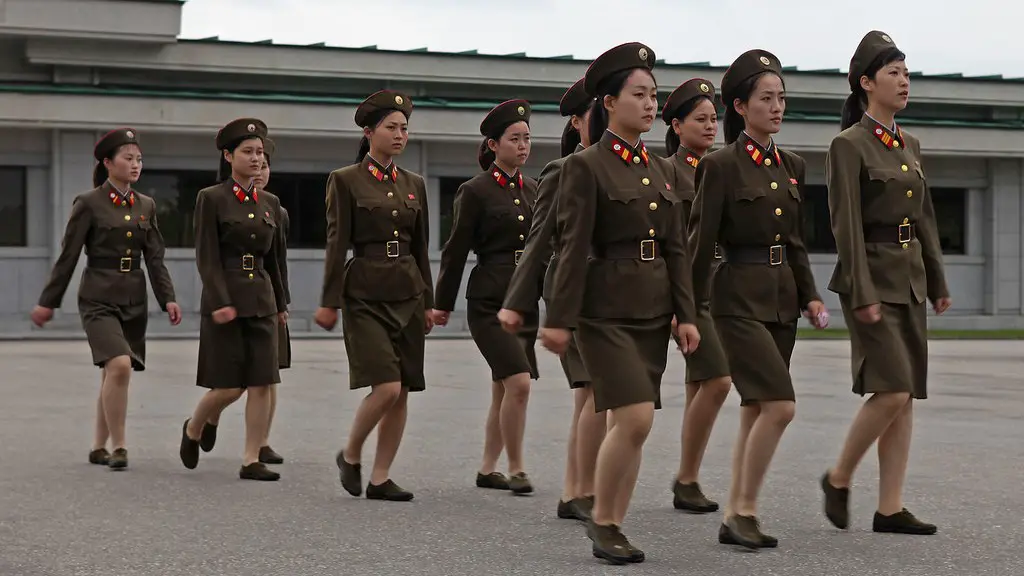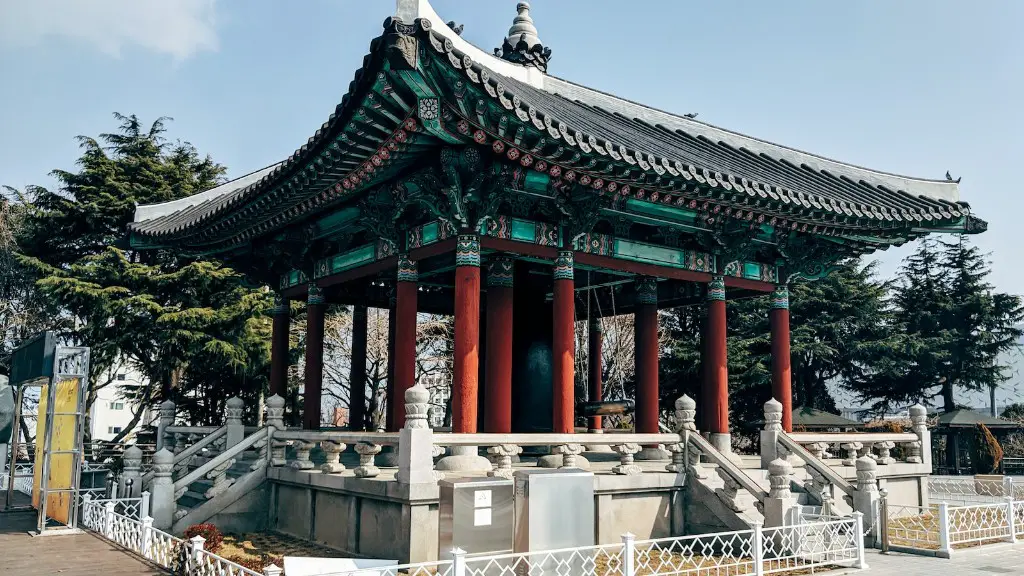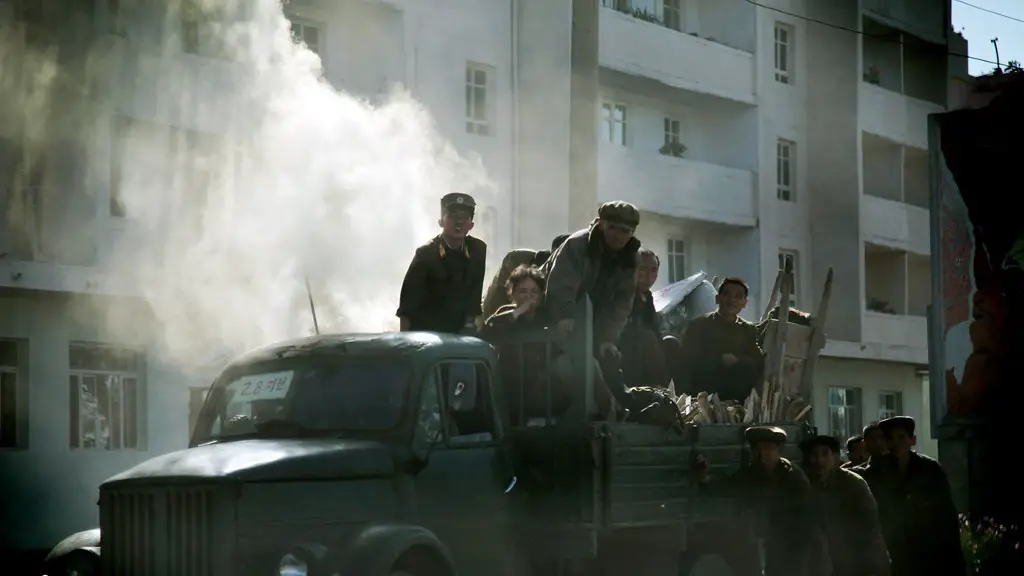The Democratic People’s Republic of North Korea – commonly known as North Korea – has long been viewed as one of the world’s most isolated, controversial and oppressive countries. But back in the early days of communist rule in the 1940s, the country was thriving, with agricultural and industrial development making it the envy of its larger neighbor, South Korea. So when, and why, did North Korea become bad?
The simple answer is that it grew increasingly more authoritarian beginning in the 1950s. North Korea was founded under the leadership of the Communist Party – of which Kim Il-sung was the general secretary – and the party remained at the heart of the country’s political structure. Under Kim Il-sung, the country developed its brand of socialism, known as “Juche” or self-reliance. This model of governance, while attractive to many North Koreans, was based on a cult of personality around Kim Il-sung, which led to the gradual erosion of individual freedoms.
As the economy grew, so too did the military. The Korean War, which erupted in 1950 and ended three years later, further strengthened the military element of the government and led to an atmosphere of fear and paranoia amongst the North Korean people. From the late 1950s onward, the government began to focus more on military development, with the majority of funding being allotted to the armed forces. This focus on military development came at the expense of the North Korean people, leading to widespread poverty and human rights abuses.
Not only were the people of North Korea facing the harsh reality of life under a repressive government, but the country’s international relations also began to suffer. Throughout much of the Cold War, North Korea was an ally of the Soviet Union, but with the fall of Communism in the late 1980s and the emergence of a more democratic South Korea, this relationship began to change. In response, North Korea become increasingly more isolated, which led to the breakdown of its economy and the deterioration of its international relations.
The international climate further worsened in the 1990s with the emergence of the United States and its allies as the dominant world power. North Korea became a target of Washington’s “Axis of Evil” policy, which further isolated the country from the international community and hampered its economy. This period of isolation has led to a deterioration of the country’s social, economic and political infrastructure, leading to widespread poverty, starvation and human rights abuses.
Thus, while North Korea has long been seen as a pariah state, its current state of affairs – while terrible – has been many decades in the making. The country’s long history of oppressive rule and international isolation has left its people impoverished and its economy in shambles, leading to one of the worst humanitarian crises in recent memory.
Becoming Nuclear
The most pressing issue in the North Korean crisis today is the country’s nuclear program. In the early 2000s, North Korea announced that it had started a nuclear weapons program, in clear violation of international law. The United Nations responded by placing sanctions on North Korea, but these sanctions failed to deter the country from its ambitions and it continued to develop its nuclear program.
Today, North Korea has an estimated 10-20 nuclear weapons and enough weapons-grade plutonium to create up to 100 more. While North Korea has not yet tested any of these weapons, its growing nuclear arsenal is a serious cause for concern, not only for South Korea and the United States, but for the entire international community.
The international community’s response to North Korea’s nuclear ambitions has been somewhat disjointed. While the United Nations has imposed sanctions on the country, there have been few attempts to engage the North Korean government and persuade them to abandon their nuclear program. Moreover, the United States and its allies have been reluctant to engage in direct talks with the North Korean government.
The situation has further deteriorated in recent years, with threats of war emanating from both sides of the divide. Although direct conflict between the United States and North Korea is unlikely, the situation remains unpredictable and potentially dangerous as long as North Korea continues to pursue its nuclear ambitions.
The Roots Of International Pariah Status
While North Korea’s nuclear ambitions are a major concern for the international community, the country’s international pariah status has deep roots. A key factor in the current crisis is the long-standing animosity between North Korea and South Korea, which began in 1945 when the Korean peninsula was divided into two countries.
Since then, the two countries have been in a state of hostilities, with the North accusing the South of violating the armistice agreement that brought an end to the Korean War and the South accusing the North of human rights abuses and clandestine nuclear programs. This mutual distrust has further exacerbated the current crisis and continues to be a major factor in the international community’s reluctance to engage with North Korea.
In addition to its strained relations with South Korea, North Korea is also isolated from the international community by its relationship with China. For decades, North Korea has relied heavily on China for economic and diplomatic support, but this relationship can be strained at times, particularly in recent years with the growing assertiveness of the Chinese government.
Moreover, the United States has imposed sanctions on North Korea and maintains a hardline stance on the country’s nuclear ambitions, further limiting the country’s diplomatic options. As a result, North Korea is seen as an international pariah and its relations with the international community remain strained.
Impact On Humanitarian Crisis
The political and economic situation in North Korea has had a devastating impact on the country’s citizens. The combination of oppressive rule, international sanctions and a crumbling economy has left the North Korean people in a state of poverty and deprivation.
The most visible sign of the North Korean crisis is the widespread famine that has plagued the country for the past two decades. An estimated two million North Koreans have died from starvation since 1995 and the United Nations estimates that over 6 million North Koreans are at risk of starvation. This crisis has been exacerbated by the international community’s reluctance to send aid to North Korea, out of fears that it would be diverted to the government or used for military purposes.
The economic and political situation in North Korea has also had a devastating impact on its people’s individual freedoms and human rights. The government has imposed strict limitations on the freedoms of expression, association and movement, and has cracked down on any perceived dissent with harsh punishments. This oppressive regime has led to the emergence of numerous human rights abuses, including the widespread use of torture and the arbitrary detention of political prisoners.
In addition to its oppressive rule, North Korea is one of the most censored countries in the world. The government strictly controls the media and has banned all foreign media, making it virtually impossible for the citizens of North Korea to access information from outside the country.
Growing Movement For Change
Despite the bleakness of the current situation, there is still hope for North Korea. In recent years, there has been a growing movement within the country for greater freedom and democracy. This movement is driven in part by North Korean defectors who have managed to flee the country and are now advocating for change from abroad.
In addition, there has been a growing number of citizens inside the country who are taking risks by engaging in peaceful protests and civil disobedience. These activists have managed to spread their message via smuggled cell phones and other forms of technology, such as USB sticks containing content from foreign media.
Moreover, the international community is beginning to warm to the idea of engaging with the North Korean government. In 2017, the United States, South Korea and China all held talks with North Korea, signaling a potential shift in the international community’s approach to the crisis.
Although the situation in North Korea remains tense and unpredictable, there are increasing signs that the country could be on the brink of change. Whether this change will lead to greater freedom and democracy, or more oppressive rule, remains to be seen.
The Hope For A Better Future
Although there is a great deal of uncertainty and fear surrounding the situation in North Korea, there is still hope for a better future. The growing movement for democracy within the country and the increasing willingness of the international community to engage with North Korea suggest that there could be potential for a peaceful resolution of the crisis.
A peaceful resolution would require a great deal of effort from both sides of the divide. The North Korean government would have to make significant reforms in order to improve the lives of its people and the international community would have to lift the economic sanctions imposed on the country in order to allow it to rebuild its economy.
Moreover, the Korean peninsula needs to move beyond its long-standing animosity in order for a peaceful resolution to the crisis to be achieved. A reconciliation between North and South Korea, mediated by the international community, could lead to greater stability and a better future for both countries.
There is a long road ahead, but it is possible that North Korea could one day become a prosperous and peaceful country. Only time will tell.





